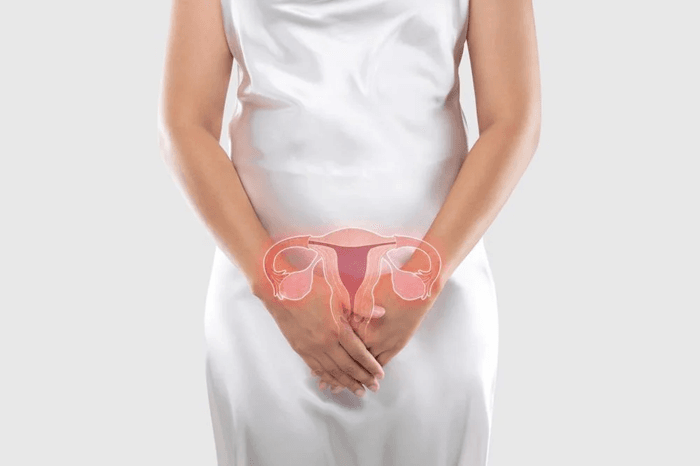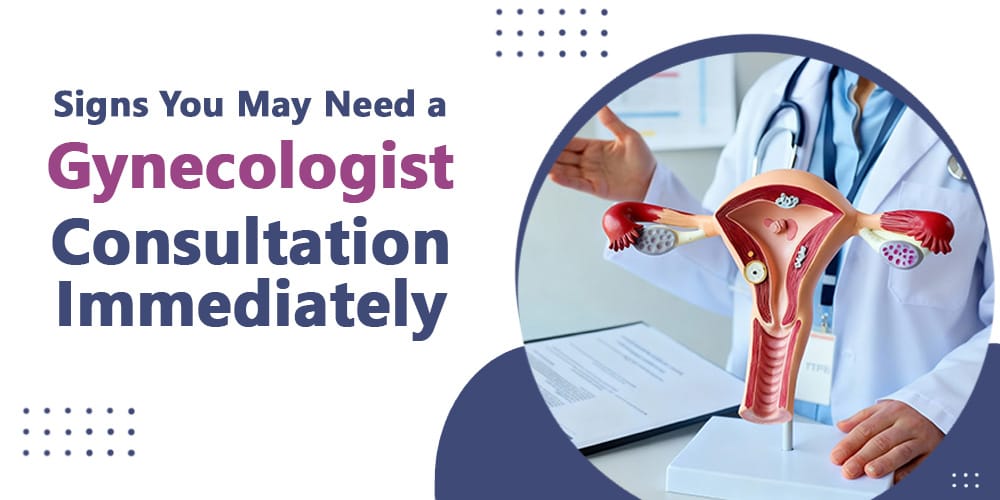Asherman’s Syndrome is a condition that involves the formation of scar tissue within the uterus. This condition can cause menstrual irregularities, infertility, and complications during pregnancy. Recognising the degenerative effects of this condition is vital for women trying to conceive or maintain a healthy pregnancy.
In this blog, our expert gynaecologist in Jaipur, Dr Pankhuri Gautam, will help you explore Asherman’s Syndrome in detail, discussing its causes, symptoms, and effects on fertility and pregnancy. Additionally, we will cover diagnostic methods, treatment options, and preventive measures, providing you with comprehensive knowledge to navigate this challenging condition.
Let’s get into the details below to know it all!
What is Asherman’s Syndrome?
Asherman’s Syndrome is a rare but severe condition where scar tissue (adhesions) forms inside the uterus. This scar tissue can cause the walls of the uterus to stick together, leading to partial or complete obstruction of the uterine cavity. This can interfere with the normal functioning of the uterus, affecting menstrual cycles, fertility, and pregnancy outcomes.
Causes of Asherman’s Syndrome
Understanding the causes of Asherman’s Syndrome is crucial for its prevention and early diagnosis. Here are the main causes and risk factors associated with Asherman’s Syndrome:
- Surgical Procedures: One of the most common causes of Asherman’s Syndrome is surgical procedures such as dilation and curettage (D&C) and caesarean sections. These procedures can damage the uterine lining, leading to the formation of scar tissue.
- Infections: Infections of the reproductive tract, such as tuberculosis and schistosomiasis, can also lead to the development of intrauterine adhesions. These infections cause inflammation and damage the uterine lining, forming scar tissue.
- Radiation Therapy: Radiation therapy used to treat cancers in the pelvic area can damage the uterine lining and lead to the development of Asherman’s Syndrome. The radiation can cause inflammation and scarring, which results in adhesions.
- Previous Uterine Surgery: Any surgical intervention on the uterus, even if not involving the uterine cavity directly, can increase the risk of adhesion formation.
Asherman’s Syndrome Impact on Fertility
Asherman’s Syndrome significantly impacts fertility due to the formation of scar tissue (adhesions) within the uterus. Here’s a concise overview of its effects:
1. Impaired Endometrial Function
The endometrium is the inner lining of the uterus, essential for fertilising an egg. Scar tissue can replace healthy endometrial tissue, leading to a thinner lining. This makes it difficult for the embryo to implant and develop properly, reducing the chances of a successful pregnancy.
2. Obstructed Uterine Cavity
Scar tissue can cause partial or complete obstruction of the uterine cavity. This can prevent sperm from reaching the egg, impede the movement of the fertilised egg to the implantation site, and create an inhospitable environment for embryo development.
3. Menstrual Irregularities
Women experience changes in their menstrual cycles, including lighter periods or even the absence of periods. These irregularities indicate reduced endometrial function and can signal difficulties with ovulation and implantation.
4. Challenges in Conception
One of the primary impacts of Asherman’s Syndrome is the difficulty in conceiving. The scar tissue can obstruct the uterine cavity, hindering the implantation of a fertilised egg. Women with severe adhesions may experience complete blockage of the uterus, making natural conception extremely challenging.
5. Complications with Assisted Reproductive Technologies (ART)
Women may face challenges with ART procedures like In Vitro Fertilisation (IVF). The impaired uterine environment can reduce the likelihood of successful embryo implantation and development, even when using advanced reproductive technologies.
Asherman’s Syndrome Impact on Pregnancy
Asherman’s Syndrome, also known as intrauterine adhesions, can significantly affect a woman’s reproductive health and pregnancy outcomes. Here are six key impacts:
1. Increased Risk of Miscarriage
Women with Asherman’s Syndrome have a higher risk of miscarriage. The adhesions can interfere with the average growth and development of the placenta, leading to poor blood supply to the developing foetus. This can result in early pregnancy loss or recurrent miscarriages.
2. Ectopic Pregnancy
The scarring and adhesions can sometimes cause an ectopic pregnancy, where the fertilised egg implants outside the uterus, often in the fallopian tube. This condition is a medical emergency and requires immediate attention as it can be life-threatening if not treated promptly.
3. Complications During Pregnancy
Pregnancy in women with Asherman’s Syndrome is often considered high-risk due to several potential complications:
- Foetal Growth Restrictions: Limited space and suboptimal conditions within the uterus can restrict foetal growth, leading to low birth weight and other developmental issues.
- Placenta Previa: Scar tissue can cause the placenta to attach abnormally, covering the cervix and leading to severe bleeding risks during pregnancy and delivery.
- Intrauterine Growth Restriction (IUGR): Adhesions restrict uterine space and impair blood flow, limiting the foetus’s growth and nutrient supply.
- Preterm Birth: The compromised uterine environment can trigger early labour, resulting in a birth before 37 weeks and associated health challenges for the baby.
4. Challenges in Delivery
Women with Asherman’s Syndrome may also experience challenges during delivery. The adhesions can cause abnormal uterine contractions and interfere with labour progression, often necessitating a caesarean section. Additionally, the presence of scar tissue can complicate the surgical procedure and increase the risk of postpartum haemorrhage.
5. Chronic Pelvic Pain
In addition to affecting fertility and pregnancy outcomes, Asherman’s Syndrome can cause chronic pelvic pain. The adhesions can lead to ongoing discomfort and pain in the pelvic region, which can significantly impact a woman’s quality of life. Managing this pain often requires medical intervention and can be a persistent issue for many affected women.
Diagnosis and Treatment of Asherman’s Syndrome
Diagnostic Methods
- Hysteroscopy: A minimally invasive procedure where a thin, lighted tube is inserted into the uterus through the cervix to visualise and diagnose intrauterine adhesions directly.
- Ultrasound: Transvaginal ultrasound can help detect abnormalities in the uterine cavity, although it may not always clearly show adhesions.
- Hysterosalpingography (HSG): An X-ray procedure involving the injection of a contrast dye into the uterus and fallopian tubes to outline the uterine cavity and reveal adhesions.
- MRI: Magnetic resonance imaging can provide detailed images of the uterine structure and help diagnose the extent of scarring.
Treatment Options
Medical Treatments:
- Hormone Therapy: Oestrogen therapy can be used to promote the growth of the uterine lining and potentially reduce mild adhesions.
Surgical Treatments:
- Hysteroscopic Adhesiolysis: A hysteroscope cuts and removes the adhesions, restoring the normal uterine cavity.
Prevention of Asherman’s Syndrome
Effective prevention of Asherman’s Syndrome involves careful surgical techniques, timely diagnosis, and proactive measures to reduce the risk of recurrence.
- Regular Monitoring: Schedule follow-ups with hysteroscopies or ultrasounds.
- Ultrasound Guidance: Employ ultrasound to avoid excessive uterine trauma.
- Limit Procedures: Avoid unnecessary and repetitive uterine surgeries.
- Early Detection: Prevent progression with prompt diagnosis.
Conclusion
Understanding and managing Asherman’s Syndrome is essential for women seeking to maintain their reproductive health and achieve successful pregnancies. Early diagnosis, effective treatment, and proactive prevention strategies are key to overcoming this condition. If you suspect you have Asherman’s Syndrome or are experiencing symptoms, prompt medical consultation is critical.
As an experienced obstetrician and gynaecologist, I, Dr Pankhuri Gautam, urge anyone affected by Asherman’s Syndrome to seek professional medical advice promptly. Early intervention can significantly improve your chances of conception and a healthy pregnancy.
If you have any questions or need further assistance, please do not hesitate to contact us for professional guidance and specialised care in Jaipur.






